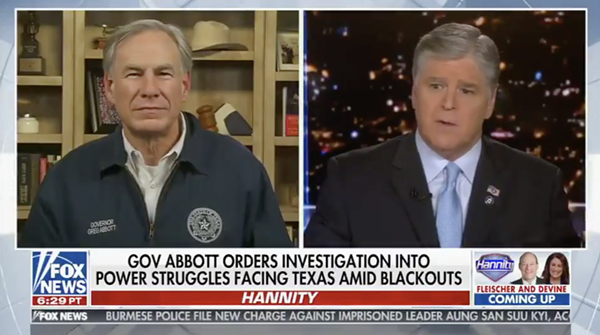
Last month, millions of people in Texas suffered through freezing temperatures and the loss of power due to a winter storm which knocked significant electrical generation capacity offline. Texas’ electrical grid suffered a catastrophic failure in a period when demand was surging due to the need for residents to heat their homes.
Details of the technical and regulatory failures which led to this crisis have been covered by journalists and academics, and the essential summary of the complex situation is this: decades of deregulation, the independence of Texas’ grid from other states, and the avoidance of weatherization/winterization of electrical generation infrastructure due to cost concerns.[i] [ii]
The storm knocked around 46 GW (gigawatts) of generation capacity offline on Monday, February 15th, more than half of the grid’s typical generation capacity (82 GW).[iii] Of the total generation capacity taken offline by the winter weather, around 18 GW was from wind energy generation, compared to 28 GW from thermal sources, including natural gas.
Despite the fact that multiple energy technologies contributed to the failure, a narrative appeared in some media coverage that frozen wind turbines were to blame for the power outages. This narrative was picked up by conservative commentators and politicians, including the current Governor of Texas Greg Abbott, who stated “Our wind and our solar got shut down, and they were collectively more than 10 percent of our power grid, and that thrust Texas into a situation where it was lacking power on a statewide basis. … It just shows that fossil fuel is necessary” during an interview on Fox News.[iv]

It is not surprising that politicians and commentators (such as Gov. Abbott or Fox host Tucker Carlson) seized upon the narrative that renewable energy sources were to blame, as they have long opposed efforts to decarbonize the United States’ energy systems. Beyond ideological or policy-based opposition to renewables, it is important to note that many politicians who perpetuated the false narrative about wind power being the source of Texas’ energy woes have benefited substantially from political donations from the oil and gas industry. An investigation into donations to Texas Republican politicians found that Senators Ted Cruz and John Cornyn, and Representative Dan Crenshaw together received more than $1.1 million from the oil and gas industry in the 2020 election cycle.[v] One of the lessons to be drawn from this chapter, beyond the importance of preparation for extreme weather events caused by a changing climate, is that the process of decarbonizing the energy system is intensely political.[vi] This is something widely acknowledged within the academic literature, but often ignored in more technocratic debates about energy technology and innovation. We should remember that entrenched interests (such as the fossil fuel industry) will continue to push back against efforts to address climate change. Texas reveals that failure to invest in adaptation measures, as well as efforts to undermine public trust in sustainable energy sources, will have significant and long-reaching implications.
[i] https://www.cbc.ca/news/technology/power-outages-texas-canada-1.5920833
[ii] https://www.bbc.com/news/world-56085733
[iii] https://www.houstonchronicle.com/business/article/Epic-power-fail-Why-so-many-Texans-are-without-15958896.php
[iv] https://www.washingtonpost.com/nation/2021/02/17/texas-abbott-wind-turbines-outages/
[v] https://earther.gizmodo.com/how-much-the-oil-and-gas-industry-paid-texas-republican-1846288505
[vi] https://www.cbsnews.com/news/climate-change-texas-winter-storms-arctic-cold/

Comments have been closed/disabled for this content.